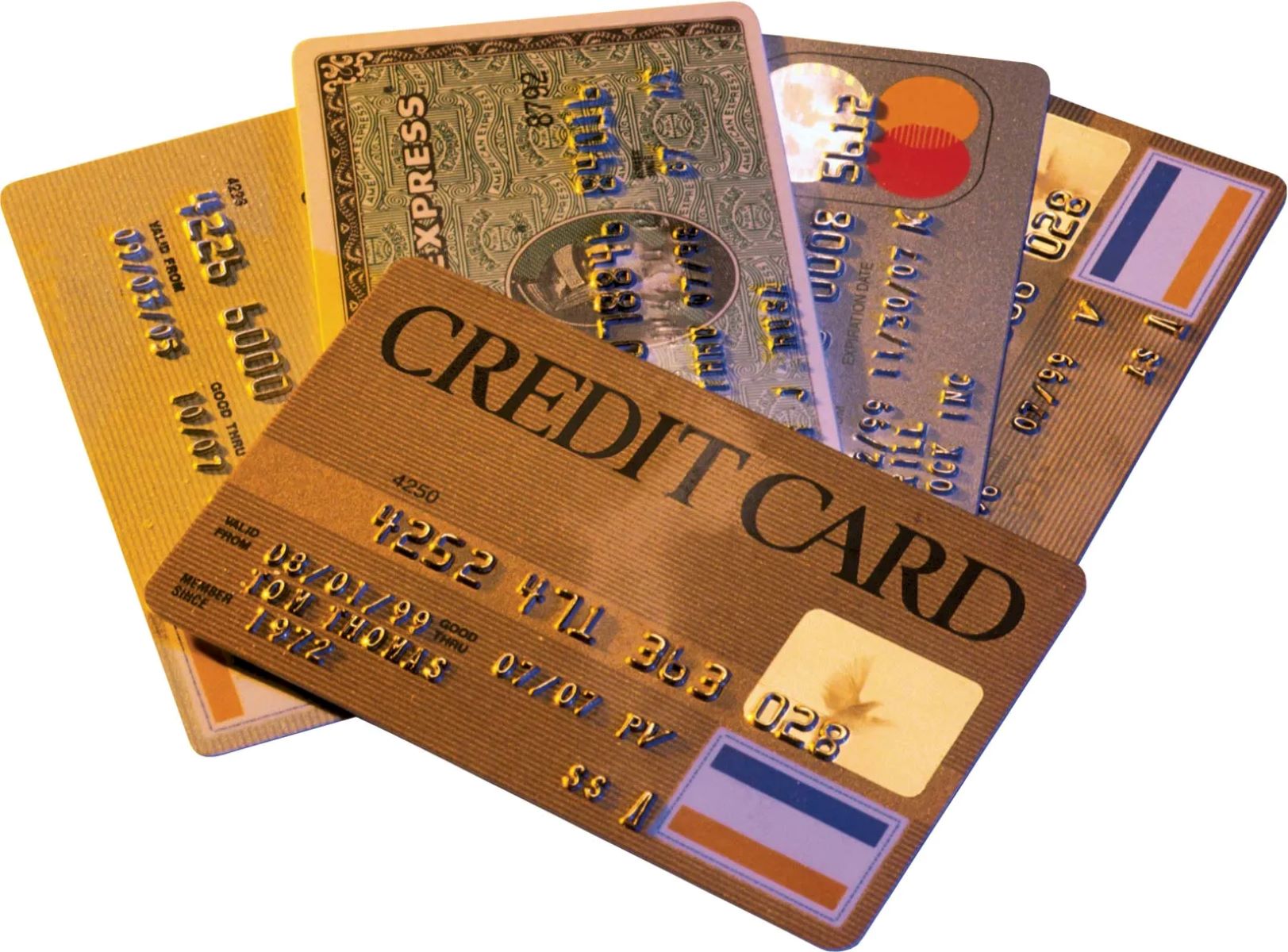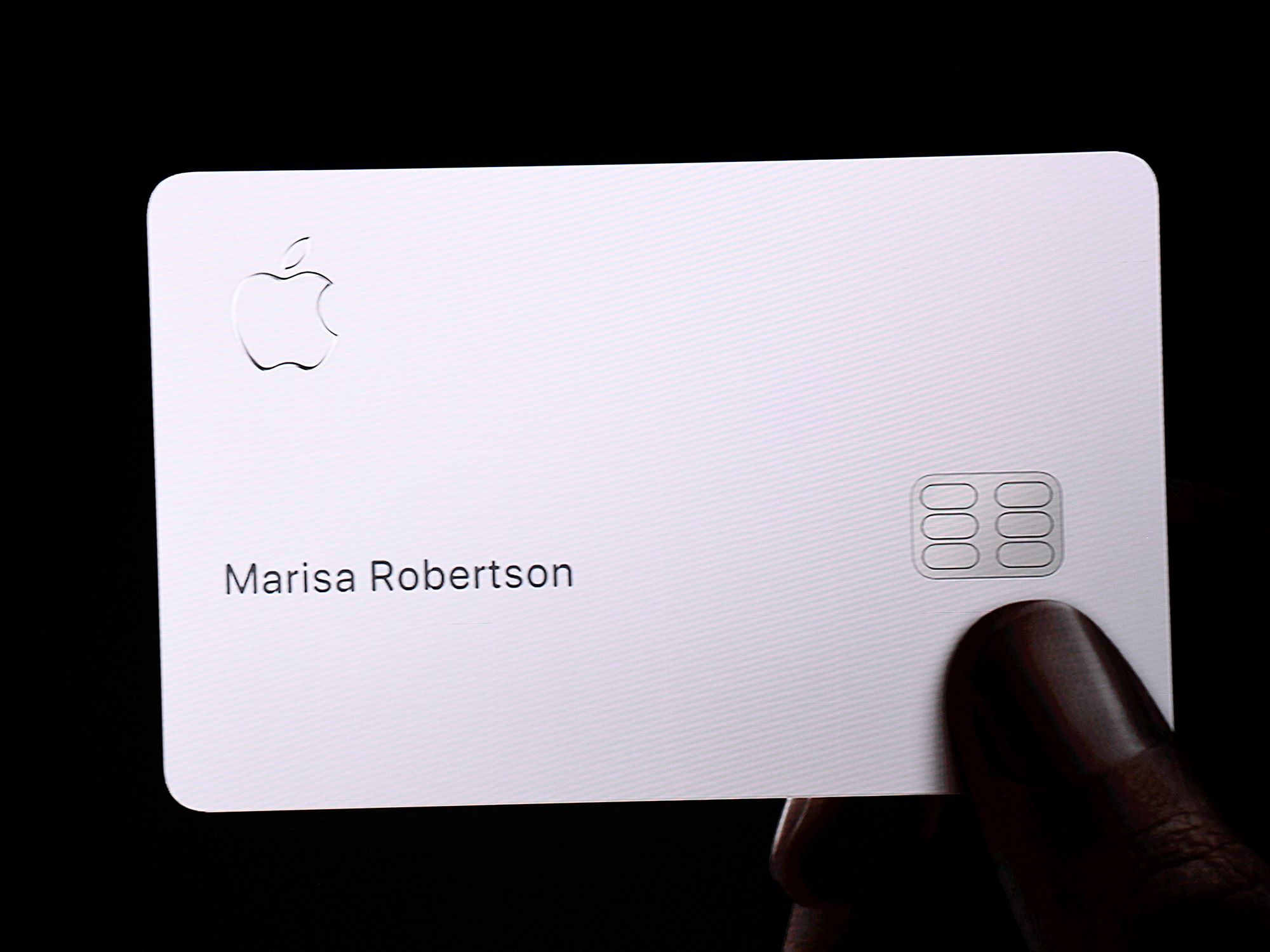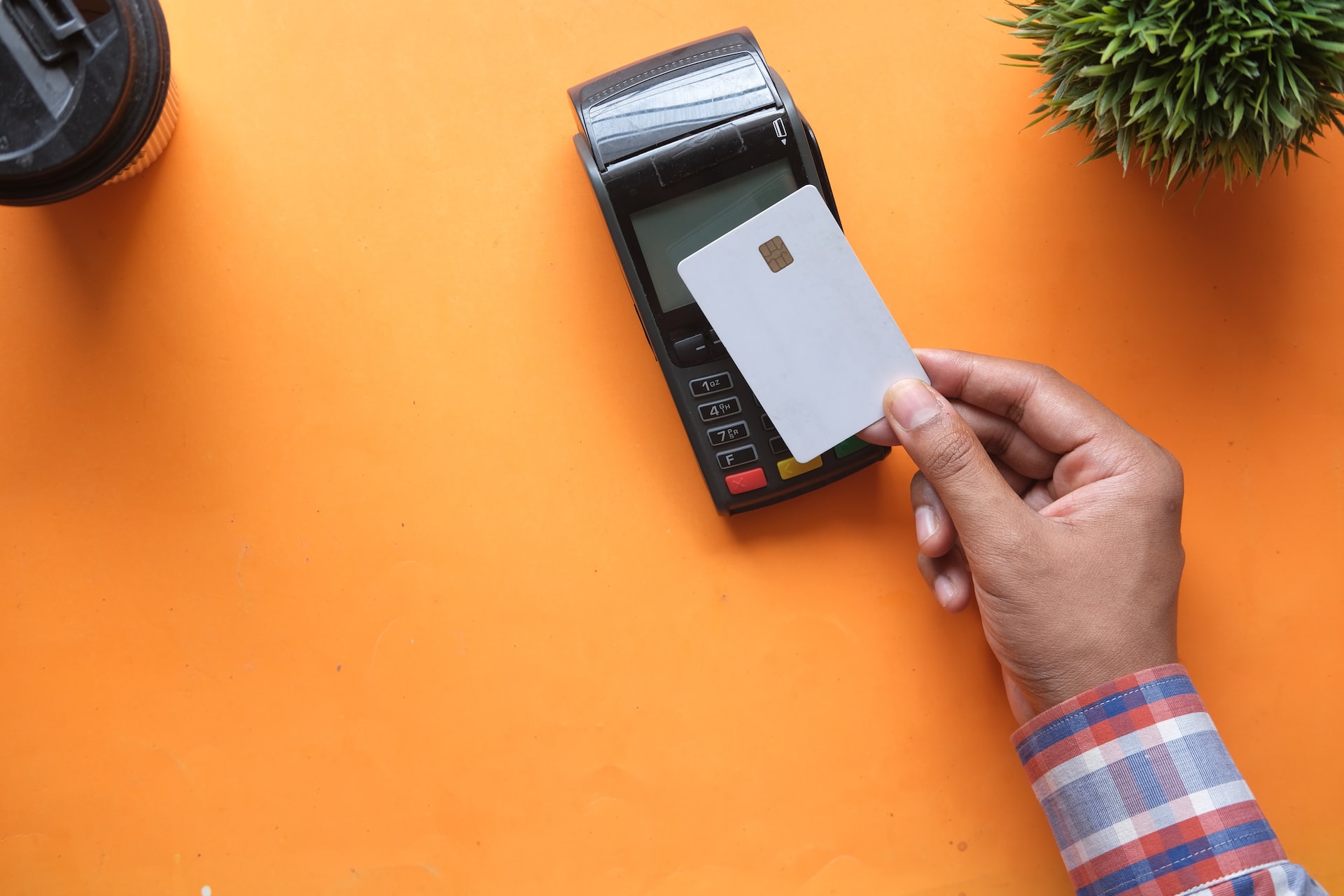

Finance
What Happens If I Don’t Activate A Credit Card
Modified: March 1, 2024
Curious about what happens if you don't activate a credit card? Discover the potential consequences and the impact on your finances.
(Many of the links in this article redirect to a specific reviewed product. Your purchase of these products through affiliate links helps to generate commission for LiveWell, at no extra cost. Learn more)
Table of Contents
Introduction
Welcome to the world of credit cards! Getting a credit card can be an exciting and convenient financial tool that offers flexibility and purchasing power. However, it’s important to understand the responsibilities that come with it, including the need to activate your credit card. In this article, we will explore the consequences of not activating a credit card and why it’s crucial to take this step.
When you receive a new credit card in the mail, it usually comes with a sticker or a notice stating that you need to activate it before you can start using it. Credit card activation is a security measure that helps verify your identity and confirms that you have received the card. It is a necessary step to prevent unauthorized use and protect you from potential fraud.
Unfortunately, some people may overlook or delay the credit card activation process. They may assume that it’s not essential or perhaps they forget to complete the activation steps. However, failing to activate your credit card can have negative implications.
In the following sections, we will discuss the potential consequences of not activating your credit card, including security risks, impacts on your credit score, and loss of perks and benefits. We will also provide step-by-step instructions on how to activate a credit card if you haven’t done so already. So, let’s dive in and uncover the importance of credit card activation!
What is credit card activation?
Credit card activation is the process of confirming the receipt of your new credit card and verifying your identity with the card issuer. It is a security measure implemented by credit card companies to ensure that the right person has received the card and is authorized to use it.
When you receive a new credit card, usually in the mail, it will come with instructions on how to activate it. The specific process may vary depending on the credit card issuer, but it typically involves one of the following methods:
- Calling a designated phone number provided on the card or in the activation instructions.
- Logging into your online banking account and activating the card through the credit card management section.
- Visiting the credit card issuer’s website or using their mobile app to activate the card.
- Using an activation code or link provided with the card to activate it online.
During the activation process, you may be required to provide certain information, such as your name, credit card number, expiration date, and the security code (CVV) on the back of the card. This information is used to verify your identity and ensure that only authorized individuals have access to the card.
It’s important to note that credit cards cannot be used until they are activated. Attempting to make a purchase or withdraw cash from an ATM without activating the card will result in the transaction being declined.
By activating your credit card, you are not only confirming that you have received it but also acknowledging your responsibility for the associated terms and conditions, including any fees, interest rates, and repayment obligations. It’s a crucial step to take before you can start enjoying the benefits and convenience of using your new credit card.
Consequences of not activating a credit card
Not activating your credit card may have several consequences that can impact your financial well-being and overall creditworthiness. Let’s explore the potential ramifications of neglecting to activate your credit card:
- Inability to use the card: The most obvious consequence of not activating your credit card is that you won’t be able to use it for purchases, whether online or in-store. Without activation, the card remains inactive and cannot be used to make transactions. This limits your access to credit and the convenience that comes with using a credit card.
- No building credit history: One of the purposes of having a credit card is to build a credit history. By using your card responsibly and making timely payments, you demonstrate your creditworthiness, which can lead to better borrowing opportunities in the future. However, without activating your card and using it, you won’t be able to establish a credit history or improve your credit score.
- Missed rewards and benefits: Many credit cards come with rewards programs, cashback offers, and other perks that can save you money or provide additional benefits. Not activating your credit card means missing out on these rewards and benefits that could have been earned with your purchases. Whether it’s airline miles, cashback on groceries, or hotel discounts, failing to activate the card means you won’t enjoy these extras.
- Potential for unauthorized use: Credit card activation is a security measure designed to protect you from unauthorized use. By not activating your card, you leave it vulnerable to theft and fraud. If someone gets hold of your inactive card, they may attempt to activate it themselves or use it for fraudulent transactions. Activating your card ensures that you are aware of its arrival and allows you to take necessary precautions to secure it.
- Missed payment deadlines: Credit cards come with billing cycles and payment due dates. Not activating your card means you won’t receive your statement, and you may miss payment deadlines. Late payments can negatively impact your credit score and result in late payment fees and increased interest rates.
It’s essential to recognize that the consequences of not activating your credit card go beyond just the inconvenience of not being able to use it. From missed rewards to potential security risks and damage to your credit score, neglecting to activate your credit card can have long-term implications on your personal finances. Therefore, it’s essential to promptly activate your credit card upon receipt.
Potential security risks
One of the significant concerns of not activating your credit card is the potential security risks it can expose you to. Credit card activation serves as a vital security measure that helps protect both the cardholder and the credit card issuer from fraudulent activities. Here are some potential security risks you may encounter if you fail to activate your credit card:
- Unauthorized use: If you don’t activate your credit card, it remains inactive and cannot be used for transactions. However, this doesn’t mean that it is immune to unauthorized use. If your inactive credit card falls into the wrong hands, someone may attempt to activate it themselves or use the card information for fraudulent purposes. Activating your credit card promptly ensures that you have control over its usage and reduces the risk of unauthorized transactions.
- Identity theft: Credit card activation helps verify your identity and confirms that only authorized individuals have access to the card. By not activating your credit card, you may be more susceptible to identity theft. Criminals may attempt to activate the card themselves using the information provided with the card or intercept the activation process to gain access to your personal details. This can lead to fraudulent activities and financial loss.
- Lack of monitoring: Activating your credit card allows you to start monitoring your transactions regularly. By not activating the card, you won’t have access to your online account or the ability to review your purchases and monitor for any suspicious activity. This lack of monitoring increases the risk of unauthorized charges going unnoticed, potentially resulting in significant financial loss.
- Delayed fraud detection: Credit card issuers have sophisticated fraud detection systems in place that monitor transactions for any suspicious activity. By not activating your credit card, any fraudulent charges made on the card may go undetected for an extended period. Delayed detection can make it more challenging to dispute unauthorized transactions and recover your money.
- Difficulty resolving issues: If you encounter any issues or discrepancies with your credit card account, it may be challenging to resolve them if you haven’t activated your card. Credit card issuers prioritize customer support and assistance for active cardholders. Without activating the card, you may face difficulties reaching customer service and getting the help you need to resolve any problems.
By promptly activating your credit card, you can mitigate the potential security risks associated with an inactive card. It ensures that you have control over your card’s usage, reduces the chances of unauthorized access, and allows you to actively monitor and address any fraudulent activity. Protect yourself and your finances by taking the necessary steps to activate your credit card as soon as you receive it.
Impact on credit score
Not activating your credit card can have consequences for your credit score. Your credit score is a numerical representation of your creditworthiness and plays a significant role in your financial life. Here’s how failing to activate your credit card can impact your credit score:
- Credit history: Your credit history, which includes the length of your credit accounts, is a crucial factor in calculating your credit score. By not activating your credit card and using it, you miss out on the opportunity to establish a positive credit history. Without an active credit card account, your credit history may show a lack of recent credit activity, which can negatively impact your credit score.
- Credit utilization: Credit utilization refers to the percentage of your available credit that you are currently using. It is a significant factor that affects your credit score. By not activating your credit card, you are effectively reducing your available credit limit, which can increase your credit utilization ratio. A high credit utilization ratio can have a negative impact on your credit score. Activating your credit card and using it responsibly can help keep your credit utilization ratio in check.
- Payment history: Payment history is a critical aspect of your credit score. Timely payment of your credit card bills demonstrates responsible credit management and positively impacts your credit score. However, not activating your credit card means you won’t receive your billing statements or payment reminders, potentially leading to missed payments. Late or missed payments can significantly hurt your credit score and take time to recover from.
- Credit mix: A healthy credit mix, which includes a combination of different types of credit accounts, can positively impact your credit score. By not activating your credit card, you are limiting your credit mix and may have a narrower range of credit types in your credit history. This can potentially have a negative impact on your credit score.
- Credit inquiries: When you apply for a new credit card, the issuer typically performs a credit inquiry, which is noted on your credit report. Credit inquiries are considered whenever you apply for new credit and can slightly affect your credit score. If you don’t activate your credit card, there is a chance that additional inquiries may be made if you decide to apply for a different card. Multiple credit inquiries within a short period can have a negative impact on your credit score.
It’s crucial to understand that your credit score is a reflection of your creditworthiness and financial responsibility. By not activating your credit card and utilizing it responsibly, you may miss out on the opportunity to build a positive credit history, manage your credit utilization effectively, and maintain a strong payment history. These factors are vital for a healthy credit score. By promptly activating your credit card and using it responsibly, you can positively impact your credit score over time.
Losing out on card perks and benefits
One significant consequence of not activating your credit card is missing out on the various perks and benefits that credit cards offer. Credit card issuers often provide cardholders with a range of rewards programs, promotional offers, and additional benefits that can enhance your financial experience. Here’s what you might be missing out on if you don’t activate your credit card:
- Rewards programs: Many credit cards come with rewards programs that allow you to earn points or cashback for eligible purchases. These rewards can be redeemed for travel, merchandise, statement credits, or other rewards. By not activating your credit card and using it for qualifying transactions, you won’t be able to accrue rewards and maximize the value of your spending.
- Promotional offers: Credit card issuers often provide limited-time promotional offers, such as introductory 0% APR periods, balance transfer deals, or waived annual fees. These offers can help save you money and provide financial flexibility. By not activating your credit card, you may miss out on these promotional opportunities that could benefit your financial situation.
- Travel benefits: Many credit cards offer travel-related benefits, such as airline miles, airport lounge access, travel insurance coverage, and discounts on hotels or car rentals. These perks can enhance your travel experience and save you money on travel-related expenses. Not activating your credit card means you won’t have access to these travel benefits, resulting in missed opportunities for discounts and upgrades.
- Fraud protection: Credit cards typically come with robust fraud protection features that safeguard your financial transactions. These features may include zero liability for unauthorized charges, fraud monitoring, and alerts for suspicious activity. By not activating your credit card, you won’t benefit from these protective measures, leaving yourself more vulnerable to potential fraud and financial loss.
- Extended warranties and purchase protection: Some credit cards offer extended warranty coverage and purchase protection on eligible purchases. These benefits can provide added peace of mind and financial security for your purchases. Without activating your credit card, you won’t have access to these valuable protections, potentially leaving you exposed to repair costs or loss on your purchases.
By not activating your credit card, you are essentially foregoing the perks and benefits that credit cards are designed to provide. These perks can add significant value to your financial life, whether through rewards, promotional offers, travel benefits, fraud protection, or purchase protections. Activating your credit card and taking advantage of these perks can contribute to a more rewarding and financially beneficial credit card experience.
How to activate a credit card
Activating your credit card is a simple process that ensures your card is ready to use. While the specific steps may vary depending on the credit card issuer, the following general guidelines will help you navigate the activation process:
- Read the instructions: When you receive your credit card, carefully read the instructions provided with the card. These instructions will guide you on how to activate your card and may include a specific website, phone number, or activation code to use.
- Visit the activation website: Most credit card issuers have dedicated websites or mobile apps that allow you to activate your card online. Visit the provided website or download the app, if applicable, and look for the section or option that allows card activation.
- Provide the required information: To activate your credit card, you will typically need to provide certain information, such as your name, credit card number, expiration date, and the security code (CVV) on the back of the card. Make sure to enter the information accurately and follow any additional prompts or verification steps as instructed.
- Call the activation hotline: Some credit card issuers provide a phone number that you can call to activate your card. Dial the provided number and follow the automated prompts or speak to a customer service representative to activate your credit card. Be prepared to provide the necessary information for verification purposes.
- Sign the back of the card: As a final step to ensure the security of your credit card, don’t forget to sign the back of the card once it is activated. This adds an extra layer of protection and helps prevent unauthorized use.
If you are unsure of the activation process for your specific credit card, contact the credit card issuer’s customer service for assistance. They will be able to provide you with the necessary information and guide you through the activation process.
It’s important to note that activating your credit card is not the same as making your first purchase with it. Once your card is activated, you may need to activate it further by completing a transaction, either online or at a physical point of sale. Refer to the issuer’s instructions or contact their customer service if you have further questions.
By following these simple steps to activate your credit card, you can ensure that your card is ready to use, allowing you to take advantage of its benefits and begin your financial journey with confidence.
Steps to follow if you haven’t activated your credit card
If you haven’t activated your credit card yet, don’t worry. You can still take the necessary steps to activate it and start using it for your financial needs. Here’s what you should do if you find yourself in this situation:
- Contact the credit card issuer: The first step is to reach out to the credit card issuer’s customer service. You can find their contact information on their website or the documentation that came with your credit card. Inform them that you haven’t activated your card and request assistance in activating it.
- Follow their instructions: The customer service representative will guide you through the activation process. They may provide an alternative method or additional steps to activate your credit card. Follow their instructions carefully and provide any necessary information for verification purposes.
- Verify your identity: During the activation process, you may be required to provide personal information and answer security questions to verify your identity. Be prepared to provide accurate information to ensure a smooth activation.
- Confirm receipt of the card: The credit card issuer may ask you to confirm that you have received the card. They may provide a specific code or ask you to provide the last few digits of the card number to confirm its arrival. This step is essential for security purposes.
- Activate the card promptly: Once you have received guidance from the credit card issuer, make sure to activate your credit card promptly according to their instructions. Delaying the activation process can further limit your access to credit and the benefits that come with using the card.
- Add a personal touch: As a final step, consider adding a personal touch to your credit card for added security. Sign the back of the card with your signature as soon as it is activated. This helps prevent unauthorized use if the card is misplaced or stolen.
Remember, it’s essential to promptly activate your credit card to ensure its usability, access the benefits and rewards associated with it, and protect yourself from potential fraud. By contacting the credit card issuer and following their instructions, you can activate your credit card and begin using it for your financial needs.
If you are still having trouble activating your credit card or have any questions, don’t hesitate to reach out to the card issuer’s customer service. They are there to assist you and address any concerns you may have.
Conclusion
Activating your credit card is a crucial step that should not be overlooked or delayed. Not activating your credit card can lead to various consequences, including the inability to use the card, missed rewards and benefits, potential security risks, and negative impacts on your credit score. It is in your best interest to take the necessary steps to activate your credit card as soon as you receive it.
By activating your credit card, you confirm the receipt of the card, verify your identity, and ensure that you are the authorized user. It also allows you to start building a positive credit history, access the perks and benefits associated with the card, and protect yourself from potential fraud.
If you haven’t activated your credit card yet, follow the specific guidelines provided by the credit card issuer. This may involve visiting their website, calling a designated phone number, or using their mobile app. If you encounter any difficulties or have questions, reach out to their customer service for assistance.
Remember, activating your credit card is only the first step. Once your card is activated, use it responsibly, make timely payments, and monitor your transactions regularly to maintain a healthy credit score and maximize the benefits of your credit card.
So, don’t delay! Take a few minutes to activate your credit card and embark on a financial journey that offers convenience, rewards, and peace of mind.














